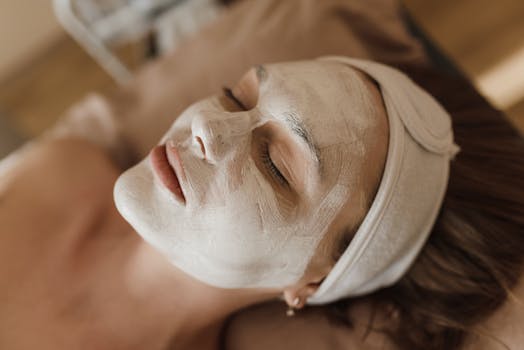
Seasonal Beauty: Adapting Your Skincare Routine for Year-Round Radiance
Seasonal beauty refers to the practice of adapting your skincare routine to the changing seasons. Seasonal skincare is crucial for maintaining healthy and radiant skin, as different seasons bring different environmental factors that can affect your skin. In this article, we will explore the importance of seasonal skincare and provide tips on how to transition your routine with the changing seasons.
Understanding Seasonal Skincare

Seasonal skincare is based on the idea that your skin has different needs during different times of the year. For example, during the winter months, your skin may need more moisture and hydration due to the dry and cold weather. On the other hand, during the summer months, your skin may need more protection from the sun and heat. By adapting your skincare routine to the changing seasons, you can help your skin adapt to the new environmental conditions and maintain its health and radiance.
Spring Skincare

During the spring season, the weather is typically mild and humid. This can cause your skin to become oily and prone to breakouts. To combat this, you should focus on using lightweight and oil-free products that help to control sebum production and reduce pores. Exfoliating regularly is also important during this season, as it helps to remove dead skin cells and unclog pores. Some key ingredients to look for in your spring skincare products include salicylic acid, glycolic acid, and tea tree oil.
Summer Skincare

During the summer months, the sun and heat can be intense, causing your skin to become dry, irritated, and prone to sun damage. To protect your skin, you should use a broad-spectrum sunscreen with a high SPF, and reapply it regularly. You should also use moisturizing products that help to hydrate and soothe your skin. Some key ingredients to look for in your summer skincare products include hyaluronic acid, aloe vera, and vitamin C.
Autumn Skincare

During the autumn season, the weather is typically cool and dry. This can cause your skin to become dry and flaky, especially if you have dry or sensitive skin. To combat this, you should focus on using moisturizing products that help to hydrate and nourish your skin. Exfoliating regularly is also important during this season, as it helps to remove dead skin cells and improve skin texture. Some key ingredients to look for in your autumn skincare products include ceramides, niacinamide, and shea butter.
Winter Skincare

During the winter months, the cold and dry weather can cause your skin to become dry, irritated, and prone to flakiness. To combat this, you should focus on using rich and moisturizing products that help to hydrate and nourish your skin. Some key ingredients to look for in your winter skincare products include hyaluronic acid, glycerin, and lanolin. You should also use a humidifier to add moisture back into the air, and avoid using hot water, which can strip your skin of its natural oils.
Transitioning Your Skincare Routine

Transitioning your skincare routine with the changing seasons can be challenging, but there are a few tips that can help make the process easier. First, start by assessing your skin type and concerns. If you have dry or sensitive skin, you may need to use more moisturizing products during the winter months. If you have oily skin, you may need to use more oil-free products during the summer months. Second, introduce new products gradually, so as not to shock your skin. Finally, be patient and give your skin time to adjust to the new products and routine.
Conclusion

In conclusion, seasonal beauty is all about adapting your skincare routine to the changing seasons. By understanding the different environmental factors that affect your skin during different times of the year, you can create a skincare routine that helps your skin adapt and maintain its health and radiance. Remember to transition your routine gradually, and don’t be afraid to seek advice from a dermatologist or skincare professional if you need help creating a customized routine.






